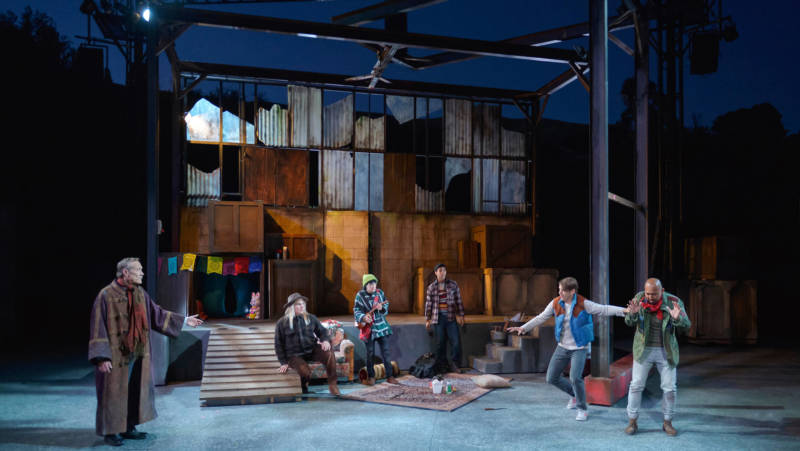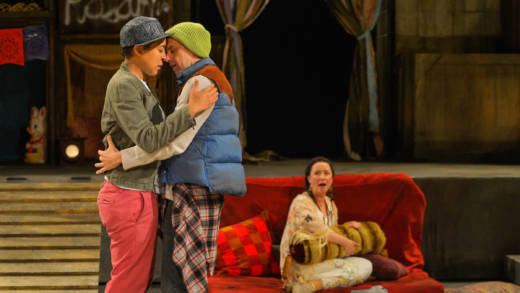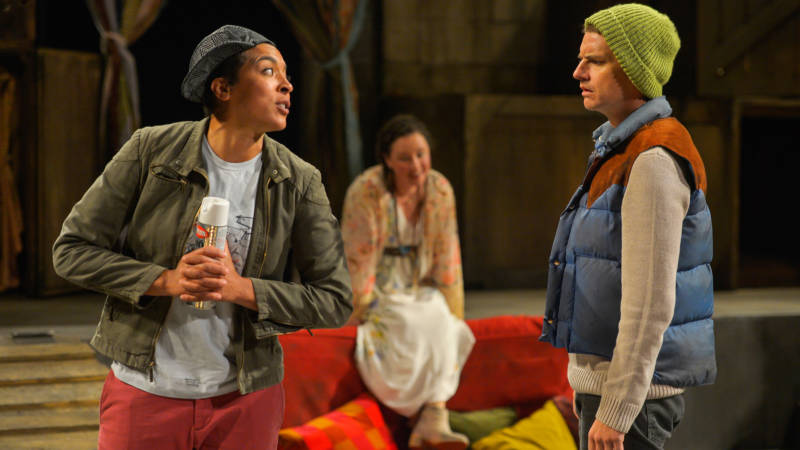Like many Shakespearian comedies, As You Like It begins in discord and works it way to a tense happiness. More so than the tragedies, these rueful takes on love’s travails feel emblematic of the times, or at least our most hopeful version of them. Director Desdemona Chiang’s class-conscious meditation on this run-away-to-the-forest-and-slip-into-a-better-world fantasia at California Shakespeare Theater is fascinating, though uncertainly executed.
We begin in the court of Duke Frederick, who has wrested political control from his elder brother, Duke Senior, both played by James Carpenter with his customary élan and precision. The fissure in the first political family seems to have nestled its way into all the relationships of the kingdom, from the best to the worst. On the side of the best, there’s Rosalind and her cousin Celia, who adore each other despite the rift between their fathers; on the worst, look to Orlando and his brother Oliver, who are in a battle over the younger’s rightful standing in the world.

We sense the natural nobility of Rosalind and Orlando, and so when for various reasons they’re both forced into exile, it feels unjust but also a wild opportunity for new freedoms. And that’s where Chiang takes a daring gambit: the forest of Arden, which serves as the domain of Duke Frederick’s brother, and the place where our daring exiles find themselves upon being banished, is not a forest at all; it’s a derelict warehouse.
The transformation of the set from the verdant Arcadia of the court to the industrial landscape of Oakland — both displaced and bohemian — is a breathtaking transposition. The production feels like it’s going to take off with it. The most beautiful scene of the evening is when the exiled Duke speaks to his lords of the joys of living outside the court: “Now, my co-mates and brothers in exile/Hath not old custom made this life more sweet/Than that of painted pomp?”

Well, that’s the question of the day, isn’t it? And you can’t help but think of the Ghost Ship and its many doubles, the tented homeless encampments under 980, and all the provisional communities that find living in the court of the Bay Area impossible. And so people seek out communities that are both more precarious and fulfilling. Concepts like these often feel tacked on, conceits without resonance. It’s amazing how easily the play slides into Chiang’s vision of the utopia that can be found in a dystopia.




